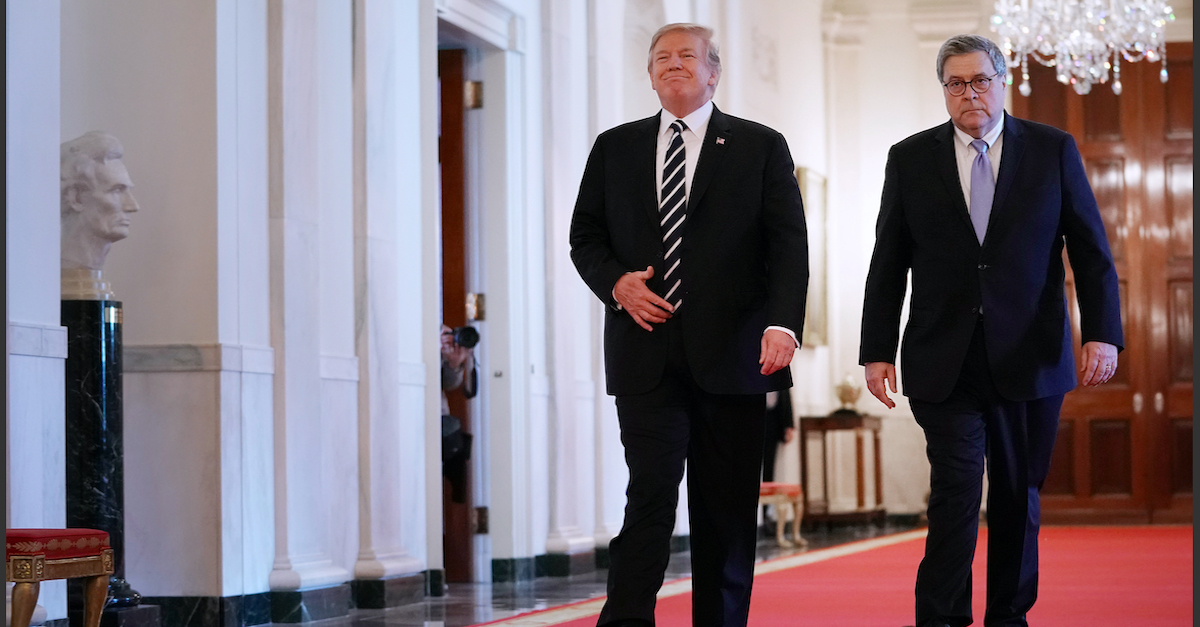
A federal judge has ordered the Department of Justice (DOJ) to make public certain lines in a court filing that were incorrectly blacked out. The order was handed down in the House Judiciary Committee’s application for an order “authorizing the release of certain grand jury materials.”
A Thursday order from the U.S. District Court in the District of Columbia found the DOJ improperly redacted the names of potential witnesses–but who ultimately did not testify–before the grand jury convened by former special counsel Robert Mueller.
Those individuals, however, “figured in key events examined in the Mueller Report,” according to Chief Judge Beryl A. Howell.
The document, Howell notes, is a declaration which “focused on possible obstruction of justice by the President” and was authored by Associate Deputy Attorney General (ADAG) Bradley Weinsheimer.
DOJ attorneys previously filed two versions of the document in question: an unredacted version for the court which was filed in secret; and another for public consumption which relied on a Federal Rule of Criminal Procedure which holds that government attorneys “must not disclose a matter occurring before the grand jury.”
The problem for the DOJ here is that those individuals never testified and therefore were not actually part of the grand jury at all.
Judge Howell rubbished the DOJ’s argument in Thursday’s order:
The unredacted ADAG Declaration indicated that DOJ broadly interpreted Rule 6(e) as cloaking in secrecy the identities of individuals who did not testify before the grand jury. DOJ’s assertion that identifying individuals who did not testify before the grand jury as part of the Mueller investigation would reveal “a matter occurring before the grand jury” is without merit and rejected. Accordingly, DOJ must refile a redacted version of the ADAG Declaration with the first sentence, part of the second sentence, and the final sentence of paragraph four unredacted.
“[I]dentifying an individual who did not testify before the grand jury does not violate Rule 6(e),” Howell continued. “DOJ concedes that this is ‘normally’ true… Unlike revealing the identity of a witness or the recipient of a subpoena for testimony, disclosing that an individual did not testify exposes nothing about what did or what will occur before the grand jury.”
“This conclusion — that identifying a non-testifying individual does not violate Rule 6(e) — holds even when the individual was at one time a potential grand jury witness. As already mentioned, while the grand jury is ongoing, a potential witness’s identity is protected insofar as that witness’s testimony has been subpoenaed.”
Howell further explained her reasoning by referencing the president himself:
Revelations in the Muller Report about a key individual — President Donald Trump — illustrate that the identity of a possible grand jury witness who did not ultimately testify before the grand jury is not a “matter occurring before the grand jury.”
“As this example makes crystal clear, revealing that the President never appeared before the grand jury exposes nothing about what did happen in the grand jury room,” Howell notes. “Further, even explicit discussion of the choice not to subpoena the President communicated nothing about the grand jury’s investigative or deliberative process: as the Report says, the prosecutor made that choice.”
“In sum, DOJ erred in redacting the first sentence, part of the second sentence, and the final sentence of paragraph four on the [DOJ’s incorrect] theory,” the court ruled. “For the reasons stated, DOJ must refile a redacted version of the ADAG Declaration with the first sentence, part of the second sentence, and the final sentence of paragraph four unredacted.”
Judge says DOJ wrongly redacted certain information by Law&Crime on Scribd
[Image via Chip Somodevilla/Getty Images]